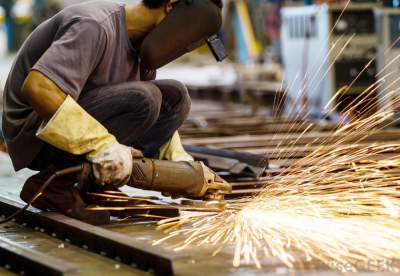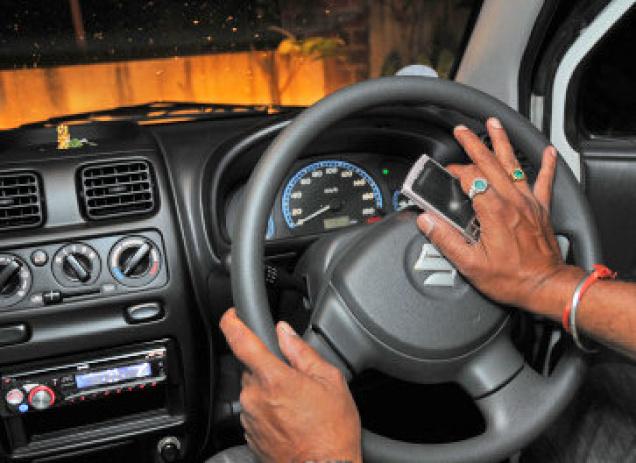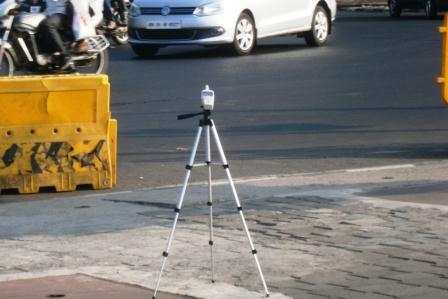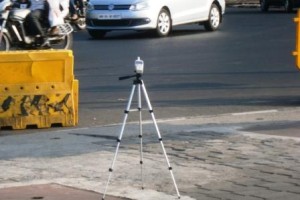Noise or sound level monitoring or measurement is a process to measure the magnitude of Noise in industries and residential area. Data collected from Noise level monitoring & Testing helps us to understand trends and action can be taken to reduce noise pollution. Noise pollution is Low or High-frequency sound that can cause/harm the activity of human life. It can be caused by various industrial Machines, Motor Vehicles and Craft etc. Noise Pollution Monitoring process is a part of Environmental Monitoring & Testing as noise pollution is also increasing exponentially in recent years.
What is Noise Pollution?
Noise pollution is unwanted and unpleasant sound which can deteriorate human health and other living organisms present in the Environment.
Types of Noise Pollution
There are multiple way from which noise pollution can occur. Major reasons for noise pollution are deforestation, Construction, Air traffic, Road traffic, Population, etc.
Noise Pollution can be divided into 2 types:
1) Man-made Noise
2) Environmental Noise
Why to Measure Noise at the Workplace?
At workplace machines, traffic, vehicles create occupational noise. Employees and occupants are exposed to this harmful noise. Due to this occupants can face many health problems such as headache, hearing impairment, hypertension, heart problem, annoyance and sleep disorder. to Avoid this situation Perfect Pollucon Services conducts Noise Testing in the company or home to measure high noise within premises. Actions can be taken once the locations and source are identified which are causing the noise. it helps to keep your employee or family safe from Harmful Noise.
Why is Noise Monitoring Important?
Noise monitoring is crucial for several reasons. First and foremost, it safeguards human health. Prolonged exposure to high levels of noise can lead to hearing loss and various physiological and psychological disorders, such as stress, sleep disturbances, and reduced productivity.
Additionally, noise monitoring helps ensure compliance with legal regulations and standards set by authorities to protect workers’ well-being. Monitoring also identifies areas of concern, enabling proactive implementation of noise control measures to mitigate risks, improve working conditions, and maintain a harmonious environment for employees.
Furthermore, noise monitoring contributes to good community relations, as industries that proactively manage noise pollution demonstrate their commitment to environmental responsibility and social welfare.
Measurement of Noise Level Using Noise Testing Equipment
Sound/Noise level meter equipment measures noise pollution. It consists of several parts, mainly Microphone, Pre-amplifier, frequency weighting, Processor, Display System, communication System and Power Supply. dB(A) Leq denotes the time-weighted average of the level of sound in decibel on scale A which is relatable to human hearing.
A “decibel” is a unit in noise measurement. “A”, in dB (A) Leq, denotes the frequency weighting in the measurement of noise and corresponds to frequency response characteristics of the human ear.
Leq: It is an energy mean of the noise level over a specified period.
Noise level Survey schedule is planned in such a way that it covers the noise generation by normal daytime activities i.e. from 08:00 am to 10:00 pm and a part of nighttime activities i.e. 10:00 pm to 12:00 am (at night).
Due to the increase in noise pollution in recent years, it is recommended to conduct a measurement of noise pollution program on company premises.
Noise level Monitoring & Testing
The answer to the question of how to measure sound lies in Noise level Monitoring or sound Measurement for a particular instance or for 24X7 hrs to analyze trends for better understanding of the environment. these Processes also used in Noise Impact Assessment (We love to do this 😉 ) by Noise level Testing companies. This process is also called as Noise level Measurement.
To know more about Noise impact assessment.
A) Industrial Noise Measurement

Industrial Noise is the loud sound in industries. In general, it is produced, at every stage in the industry by various aspects like welding, hammering, drilling, blowing, running machinery, motors, sheet metal work, lathe machine work, operation of cranes, grinding, turning, fabricating, forging, compressing, breaking, moulding, steaming, boiling, cooling, heating, venting, painting, pumping, packing, transporting etc. It creates very serious of large-scale noise problems; significantly affect the working people as well as surrounding people.
B) Non-Industrial Noise Measurement
i)Road Traffic Noise:
Road traffic is the most widespread source of the noise. It is directly proportional to the volume of vehicles. Increasing the population is increasing in vehicles and hence increasing of Noise pollution. The major sources of noise in automobiles are exhaust, intake, engine and fan, and tires at high-speed. Noise Level Monitor instrument (or with noise level data logger) measures the noise level.

ii) Residential Noise Measurement
In normal day –to – day activities, various home appliances in our residences produce noise. Some of the major sources are Exhaust Fans, lawn movers, grinders, Fan, Cooling & Heating System, T.V & Music System, motors used for pumping etc.
Read here how to reduce noise pollution
Noise Level Testing Standards
Limits or noise level standards defined by pollution control board during Day time for Residential Noise < 55 dB and Limits during Night time for Residential Noise < 45 dB
In industry, there are of two types Sound Monitoring & testing or Noise Level Measurement:
- Ambient Noise level Monitoring
- In-plant Noise level Monitoring
A) Ambient Noise Level Testing Standards
Ambient Noise level Monitoring or Noise pollution Measurement within the industrial zone at ambient conditions. (e.g. Near Main Gate, Near Canteen, Near Manufacturing plant etc.) As per Central Pollution Control Board (as per Factory act 1948):
Limits or acceptable noise level during Day time for Ambient Noise < 75 dB and Limits during Night time for Ambient Noise < 70 dB.
B) In-plant Noise level Testing Standards
In-plant Noise level means Sound level measurement allocated in the plant. As per Central Pollution Control Board (as per Factory act 1948) Limits for In-plant Noise level < 90 dB.
Learn more about Workplace or Office Environment Monitoring for employee health and safety
Noise Monitoring & Testing Company
Perfect Pollucon Services is a leading Noise Level Testing Company in India. We have highly trained and highly experienced professionals who can take care of Noise level Monitoring or testing.
Noise level Monitoring Procedure
Noise level measurement procedure are processes which record sound level or acoustic energy level in the specified area. Sound or Noise level meter measures noise in Unit decibel (dB). We will see what are important factors to keep in mind while measuring noise level. You can also read more about Noise level measurement procedure.
Noise Level Monitoring Instruments
Below are some of the popular Noise Level Meter Instruments available in market:
- Brüel & Kjær 2250 Handheld Sound Level Meter: Known for its precision and versatility, it offers advanced functionalities and is widely used in professional applications.
- SVANTEK SV 971 Sound Level Meter: Highly regarded for its compact design, ease of use, and robust features, suitable for various noise measurement tasks.
- RION NA-28 Sound Level Meter: Renowned for its accuracy and user-friendly interface, it is ideal for professional noise measurements.
- Extech 407730 Digital Sound Level Meter: A budget-friendly option with good accuracy and user-friendly features for general noise measurements.
- TES-1358 Sound Level Meter: Known for its affordability and portability, making it a suitable choice for basic noise level measurements.
- Cirrus Optimus+ Sound Level Meters: Offers a range of models with advanced features for different applications, known for their reliability and precision.
- 3M Quest EDGE Personal Noise Dosimeter: Designed for personal noise exposure monitoring, providing accurate data for compliance assessments.
- Casella CEL-633A1 Sound Level Meter: Offers a wide dynamic range and real-time octave band analysis, suitable for detailed noise studies.
- Testo 815 Sound Level Meter: A compact and reliable option for general noise level measurements.
- Norsonic Nor131 Sound Level Meter: Known for its ruggedness and high-quality measurements, suitable for various industrial applications.
Noise Pollution Monitoring System using IoT
A noise pollution monitoring system utilizing IoT technology represents a cutting-edge approach to addressing the challenges posed by excessive noise in urban environments. By deploying a network of smart sensors equipped with noise detectors, this system continuously gathers real-time acoustic data from various locations.
This data is then transmitted to a centralized platform via the Internet, where it is processed, analyzed, and visualized in user-friendly interfaces accessible to relevant stakeholders, such as local authorities, environmental agencies, and the general public.
By harnessing the power of IoT, this monitoring system empowers cities to identify noise pollution hotspots, enact timely interventions, enforce noise regulations, and engage in evidence-based urban planning to create healthier and more liveable urban spaces.
Noise Monitoring / Testing Services
We offer Noise monitoring services to measurement noise pollution for D.G. stacks, traffic, machines etc. Our professionals use technically advanced monitoring and analysis tools. We offer Noise Quality monitoring services as per national standards and regulations backed up by timely execution, efficient professionals and cost-effectiveness.
We offer Noise testing services in customized options for 24 hours and multiple sites as per demands of our clients, environmental agencies, furnace units, chemical plants and conveying units.
Our Special Features for Noise Testing Services:
- Cost competitiveness
- Eco friendly
- Time adherence
- Legal compliance
Frequently Asked Questions:
There are three types of Noise pollution monitoring:
1) Spot Reading or basic noise level monitoring – in this method single reading is taken using handheld device
2) Continuous Noise level Measurements – In this method noise level meter is kept on tripod for set duration and it takes reading after every set period. This helps us to understand trends and anomalies in noises
3) Longer term Noise level monitoring – In this method, noise levels are monitored for longer period such as few months to several years by small intervals such as 5 mins, 15 mins, 30mins or 1 hour or more. This helps us to understand noise pollution patterns over longer period.
As per Perfect Pollucon Services, We can measure Sound levels using Sound level meter. It is measured in unit Decibel (dB). There are also some apps available for mobile devices but accuracy of those apps is not upto the mark.
If you don’t have Noise level meter then you can use certain mobile apps which can give you approximate noise levels. But for more accuracy you can contact environmental consultants in your nearby area as they will have professional devices to measure noise levels.
As per WHO, globally acceptable noise levels are 55 (dB) during day and 45 (dB) during night. Also, these criteria change based on exposure duration and locality such as hospitals, schools etc.
As per CPCB, The permissible limit in industrial areas is 75 dB during the day and 70 dB at night. Same for commercial areas during the day and night, it is 65 dB and 55 dB and 55 dB and 45 dB in residential areas.
Noise monitoring for industrial areas involves the systematic tracking and analysis of sound levels and patterns within manufacturing and production facilities. It aims to assess the impact of industrial activities on noise pollution, ensure compliance with noise regulations, and implement mitigation strategies to safeguard both workers’ well-being and the surrounding environment.
The method of noise level monitoring involves using specialized equipment, such as sound level meters or noise dosimeters, to measure and quantify the intensity of sound in a given environment. These devices capture acoustic data, which is then analyzed to determine the sound pressure level, frequency distribution, and potential exposure risks, providing valuable insights into the noise environment.
Noise monitoring refers to the systematic process of measuring, recording, and assessing sound levels in various environments to understand the extent of noise pollution and its potential impact on human health and the surrounding ecosystem. It involves using specialized equipment to gather data, which is then analyzed to make informed decisions about noise management, regulatory compliance, and mitigation strategies.
Noise Measurement Company
We carry out Sound or Noise Monitoring And Noise Testing services with periodically calibrated instruments which gives you accurate reading with the analysis report.
Share this article with your friends and family!
Please contact us for more information or avail our Environmental Monitoring services.


